All Natural Effective Fungicide, Insecticide, & Pesticide Treatments in Your IPM Routine

Pests, fungus, and mildew can cause significant damage to plants and crops, and if you have experienced this with your own gardens, flowers, vegetables, or grows of any kind, you know how frustrating it can be. What you need to do is to utilize an IPM system, or a systematic approach to Integrated Pest Management (IPM). As the term integrated implies, a single factor is not used to control pests in in an integrated management system. An IPM program combines tactics in the areas of cultural, mechanical, biological, and chemical methods, and choosing the right chemical insecticide, fungicide, or pesticide solution is vital to this process. The overall goal and importance of IPM is to manage pest control in a way that promotes the health and safety to the environment and the human consumer. IPM seeks to control and reduce the harm caused by specific pest populations rather than eradicate them and other populations in the process.
Since a key part of IPM is selecting an effective chemical treatment for pest, fungus, and mildew control, it is necessary to discuss what solution or product to use as part of the IPM process. If you apply a chemical insecticide, pesticide, or fungicide you may see instant results, but the reality is that synthetic insecticides or fungicide treatments can actually have the opposite effect. The more you use some insecticides, pesticides, and fungicides the stronger some pests and mildew can actually become. Nobody wants a super-pest that has become resistant to your chemical applications and just won’t go away, or a fungus that continues to spread.
When it comes to defeating pests, fungus, and mildew, traditional pesticides, insecticides, or fungicide treatments are focused solely on the elimination of pests and fungus through chemical means. The next time you are looking for a fungicide for plants, a fungicide for lawns, or an effective insecticide that will stand the test of time, consider an all natural solution for long term care and maximum benefits. All natural solutions seek to control, eliminate, and address the factors that cause pests, mildew, and fungus in a more environmentally friendly manner. All natural synthetic alternatives are effective without the risk of hazardous chemicals exposure to both people and the environment.
What is IPM?

Integrated Pest Management seeks to eliminate pests, fungus, and mildew, and works to destroy the ability of pests to live and breed. Along with all the factors included in an IPM system, selecting a treatment that can be applied to lawns, gardens, plants, and crops of all types is important. These solutions target long term prevention, so you can continue to grow healthy pest-free, fungus-free, and mildew-free plants and crops on a more permanent basis. These solutions can be a chemical IPM, but selecting an all natural solution as part of your IPM process will not rid the plant of its own beneficial microbes as is the case with synthetic chemical solutions.
An effective IPM system that uses pesticide, fungicide or insecticide should be:
- An all-natural solution applied to plants, crops, grasses, gardens, trees, shrubs, fruits, vegetables, and grows of any kind to control and eliminate pests, fungus, and mildew
- A treatment that works to keep plants and crops free of fungus and mildew
- A treatment that works to control & eliminate pests by interfering with the life-cycle stages
- A treatment that does not rely on synthetic chemical pesticides of insecticides
- A treatment that delivers no residual, harmful effects to people, pets, or the environment
- A treatment that does not produce a resistance to pests, mildew, or fungus
- An environmentally sensitive solution that targets long term pest prevention and control
- A comprehensive solution that limits the population and reproductive rates of pests
How Does IPM Work:

IPM involves several integrated processes. There are a variety of solutions that fall into different categories. Cultural integration methods include things like soil treatment, crop rotation, and selection of suitable plants. Mechanical integration methods include removing or killing pests or blocking their access to the plant through traps, steaming, heating, etc. Biological integration includes destroying pests via predators or pathogens. Chemical integration includes using natural or synthetic substances to wipe out or repel pests such as oils or plant extracts. Scouting integration includes regular inspection.
When utilizing IPM, it is important to remember to:
- Regularly monitor your plants and crops
- Take preventative measures up front like crop rotation or using pre-treated seeds
- Identify the pest type and assess the possible damage and risks
- Decide what actions to take
- Institute all IPM options available
- Analyze the results and determine next steps
What Are the Ingredients in All Natural Solutions That Are Used As IPM Components:

The ingredients in all natural solutions are safe for the plant, the environment, and the people who will come in contact with the plant during or after growth. An all natural fungicide, insecticide, and pesticide will better serve your needs in the long run than a synthetic based fungicide for plants or insecticide for pest control.
All natural ingredients:
- Made from all natural essential oils like soybean and corn oil, citric acid, peppermint oil
- Have been proven effective against pests
- A blend of ingredients that work together to control pests
- Safe and non-toxic to people and pets
- Environmentally sound
- Do not cause pest resistance
- Do not rid the plant of its beneficial microbes
- Are effective in preventing not only pests but also fungi and mildew
What Are Other All-Natural IPM Methods?

There are a variety of natural remedies and homemade solutions that can serve as a fungicide for lawns or plants, insecticide, and mildew treatments for plants and crops. Such recipes can include milk, garlic, horticultural oils, Sulfur, compost tea, and baking soda. There are also many all-natural pesticides including vegetable oil spray, soap spray, diatomaceous earth, garlic spray, Chile pepper spray, and tomato leaf spray. Many IPM solutions available treat pests, mildew, and fungus alike.
When using an all-natural method:
- Determine what type of fungus, mildew, or pest you are dealing with first
- Apply to a small area for testing
- Follow the recipe or solution guidelines for mixing and applying
What Are the Benefits of All Natural Solutions?

Your lawn, garden, and plants will benefit from all natural solutions. Many houseplants are affected by fungus and need a long term and safe fungicide. Gardens, plants, and greenhouse grows are susceptible to unwanted pests, so there is a need for solutions that control the development and proliferation of pests, fungus, and mildew. Traditional chemical pesticides and insecticides can build a resistance in pests and can be damaging to the plant and the environment. Synthetic methods may have great short-term effects on ridding your plants and crops of pests, but inevitably, the pests return stronger than before. Relying on all natural solutions as part of your IPM is the smart choice for keeping your plants pest free on a more permanent basis.
There are a number of advantages to using all natural solutions with your IPM system:
- They are all-natural, safe, and non-toxic
- When paired with other natural methods, they offer effective pest control and elimination
- Will not rid the plant of beneficial microbe populations
- They promote the overall health of the plant, not just the elimination of pests
- They promote long-term pest control
How to Use All Natural Solutions?

Applying solutions is not difficult with the correct equipment. When applying IPM solutions to young and delicate plants, it may be advantageous to utilize a small fogger. Foggers deliver micron sized droplets in the form of an atomized spray that effectively and evenly covers the entire plant. IPM solutions can also be sprayed on larger areas such as grass, trees, and shrubs.
To use IPM solutions:
- Identify the type of pest, mildew, or fungus and select the appropriate IPM solution
- Utilize a sprayer or fogger to apply the solution efficiently and effectively
- Carefully read the label for the appropriate mix ratios
- Do not over use
- Follow the correct schedule of application as outlined on the product label
Recommendations:

There are a number of all natural solutions on the market that you can use with your IPM system, but one stands out from the crowd. PetraTools’ Crop Defender is an all-natural insecticide and fungicide that is a powerfully effective treatment for pest control and elimination.
PetraTools’ Crop Defender:
- Is a broad-spectrum IPM solution to defeat powdery mildew, aphids, thrips, fungus gnats, whiteflies, and botrytis
- Is an All-Natural Bio Pesticide, Miticide, Fungicide, and Insecticide for mainly indoor plants
- Is super concentrated and cost-effective
- Made in the USA
- Is non-toxic and completely safe for people and pets
- Is environmentally friendly
- Contains a special blend of oils defeats on contact and repels
- Prevents the formation of insect resistance
- Prevents rain wash-off for longer protection
- Poses no harm to beneficial insects like bees and ladybugs
- Can be used on houseplants, indoor or outdoor gardens, fruit and vegetable crop, greenhouses, and growth of all kinds
For superior protection of soft bodied pests, PetraTools’ Crop Defender is the right choice. It protects plants from harm while solving your pest problem for healthy growth and an abundant yield.
Conclusion:
Pest management is on the mind of every grower. Utilizing IPM and choosing the right solution can make all the difference to the long-term success of your plants. Reach for an IPM solution that will solve your pest problem while maintaining safety and the optimizing the health of your plants.






